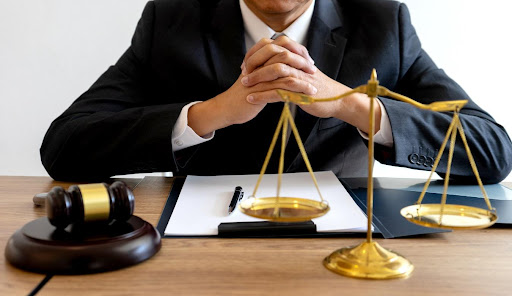When faced with criminal charges, the stakes are high. Even a misdemeanor conviction can affect your personal and professional life. You will need an experienced criminal defense attorney to achieve the best outcome possible. In case you want to remove your conviction under the clean slate act Michigan you need an attorney with great potential and knowledge.
A defense attorney can challenge the prosecutor’s evidence, meet them at settlement negotiations, and prepare for trial if necessary. Your attorney should be your trusted advisor throughout this process and assist with developing a game plan that optimizes your chances of success.
Here are some strategies that may help give you an edge when facing criminal charges.
Build a Strong Defense From the Start
The earlier you involve your defense attorney in the case, the more options he has to pursue a winning strategy. Your attorney may find weaknesses in the prosecution’s evidence or develop a strategy for challenging the charges.
You also have a better chance of securing your attorney’s full attention at the beginning of the case when the stakes are relatively low than when the case is at the height of media attention.
Your defense attorney can assist you with:
- Gathering information – Collecting the facts, statements from witnesses, and any other evidence relevant to the charges against you.
- Assessing risks – An attorney can help you understand the likelihood of being charged and the potential penalties.
- Consulting with experts – Your attorney can hire experts to examine the evidence against you, such as fingerprints or DNA, and provide an independent opinion.
- Developing a criminal defense strategy– Your attorney can help you think through how to respond to the charges against you and gather evidence to support your case.
Challenge the Prosecution’s Evidence
The prosecution’s case against you will depend heavily on the strength of the evidence against you. A good defense attorney will challenge the prosecutor’s evidence by raising questions such as:
- Is the evidence authentic and reliable?
- Is the evidence related to my client?
- Are there any procedural defects in the collection of evidence?
- Does the evidence show that my client is guilty beyond a reasonable doubt?
The defense attorney may file a motion to suppress evidence if you are charged with a crime. A motion to suppress challenges the admissibility of evidence, such as a search warrant, and may be the only way to address certain evidentiary concerns.
Negotiate a Plea Deal
The prosecutor may negotiate a plea deal with you without a trial if you are charged with a crime. A plea deal is an agreement between you and the prosecutor that you will plead guilty to the charges in exchange for reduced penalties.
Your defense attorney will help you consider the pros and cons of a plea deal in light of your goals and desires. For example, accepting a plea deal may end the uncertainty of a pending court case, enable you to get back to work, and maintain your reputation.
But accepting a plea deal may also mean giving up your right to a trial where you have a chance at an acquittal. A skilled defense attorney can help you understand the advantages, disadvantages, and risks of each plea deal on the table and determine which one is in your best interest.
Know the Law
Your defense attorney will know the relevant law and how to challenge parts of the prosecution’s case. But as the defense, you are also responsible for being aware of the law that applies to your case.
You can build your knowledge of the law by reading court decisions, statutes, and other materials relevant to the charges against you. You can also find resources online, such as a text-searchable version of the Model Penal Code.
Reading the law and applying it to your case may have several benefits, including helping you:
- Understand the charges against you and how to respond to them.
- Recognize how law and facts relate to one another.
- Improve your negotiation position by understanding the penalties you are facing.
- Inform your defense strategy by understanding what parts of the prosecution’s case you can challenge.
Change the Narrative
If you want to challenge the prosecution’s evidence, you may want to change the narrative about the events in question. Narratives are representations of the facts that may be either accurate or inaccurate.
A prosecution narrative is a version of the facts that paint you guilty. Your defense attorney may challenge the prosecution’s narrative through cross-examination. You can also challenge the narrative yourself by telling your side of the story.
You can provide a written narrative or statement to the court and prosecutor. A narrative or statement can help you clarify your version of the facts and challenge the prosecution’s narrative.
You can also help your attorney challenge the prosecution’s narrative by collecting and organizing evidence that supports your version of events.
A criminal defense attorney can help you develop a winning strategy. But it is also up to you to understand your role in the proceedings. You can help the attorney challenge the prosecution’s evidence and build your case by becoming informed about your case’s law, narrative, and evidence.
You can also help protect your interests by requesting a stay-away order if you have been charged with assault. You may still face criminal charges. But with the help of a criminal defense attorney, you can increase your chances of a successful resolution.
